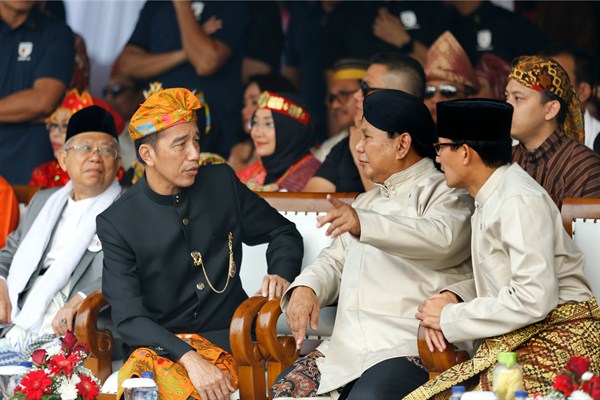Already two months underway, Indonesia’s long presidential campaign is shaping up to be deceptively similar to its divisive race four years ago, which was marred by political smears and religious tensions. Incumbent President Joko Widodo, widely known as Jokowi, finds himself facing off for the second time against Prabowo Subianto, a former army general, but with identity politics and religion crowding other issues out of political debate in the world’s most populous Muslim-majority country.
Both candidates have secured themselves within Islamist camps, to be safe from accusations of impiety. But in doing so, they have aligned themselves with violators of human rights who threaten to bring hard-line Islamist politics center stage if they are voted in next April.
“This is a race between Islamists and Islam,” says Bonar Tigor Naipospos, the deputy director at the Setara Institute for Democracy and Peace, a nongovernmental organization in Jakarta. “The group behind Prabowo is the group that would rather see Islamic law [in Indonesia]. The group that is more moderately religious, who believe Islam is only a part of the country, they support Jokowi.”

